Denmark’s reliably enfant terrible, Lars Von Trier, was kicked out of Cannes Film Fest due to his anti-Semitic remarks in a press conference for his new movie there. However, Melancholia, the follow-up to his controversial film Antichrist, is a major achievement. More restrained, meditative, and existential than other works, this movie boasts a largely Anglo-American cast, headed by Kirsten Dunst, who renders a brilliant performance.
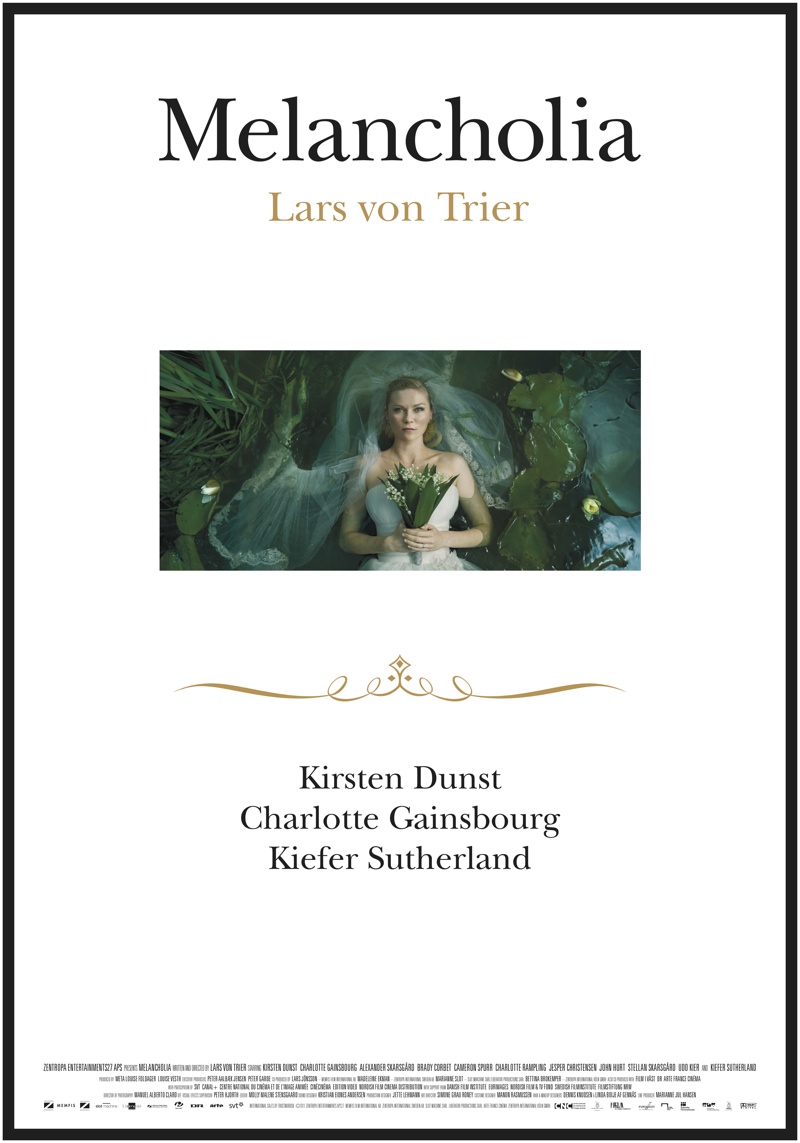
At its world premiere in the Cannes Film Fest, there was consensus that the film is striking and powerful in its production values, but critics disagreed over the strength of the narrative as a whole, with some finding it lacking in emotions and feelings.
For a director who’s often and famously charged of being a misogynist and torturing his actresses on his movie sets, Von Trier has created over the past two decades an amazingly impressive gallery of complex female characters, played by the likes of Emily Watson, Bjor, Nicole Kidman, Charlotte Gainsbourg, and others.
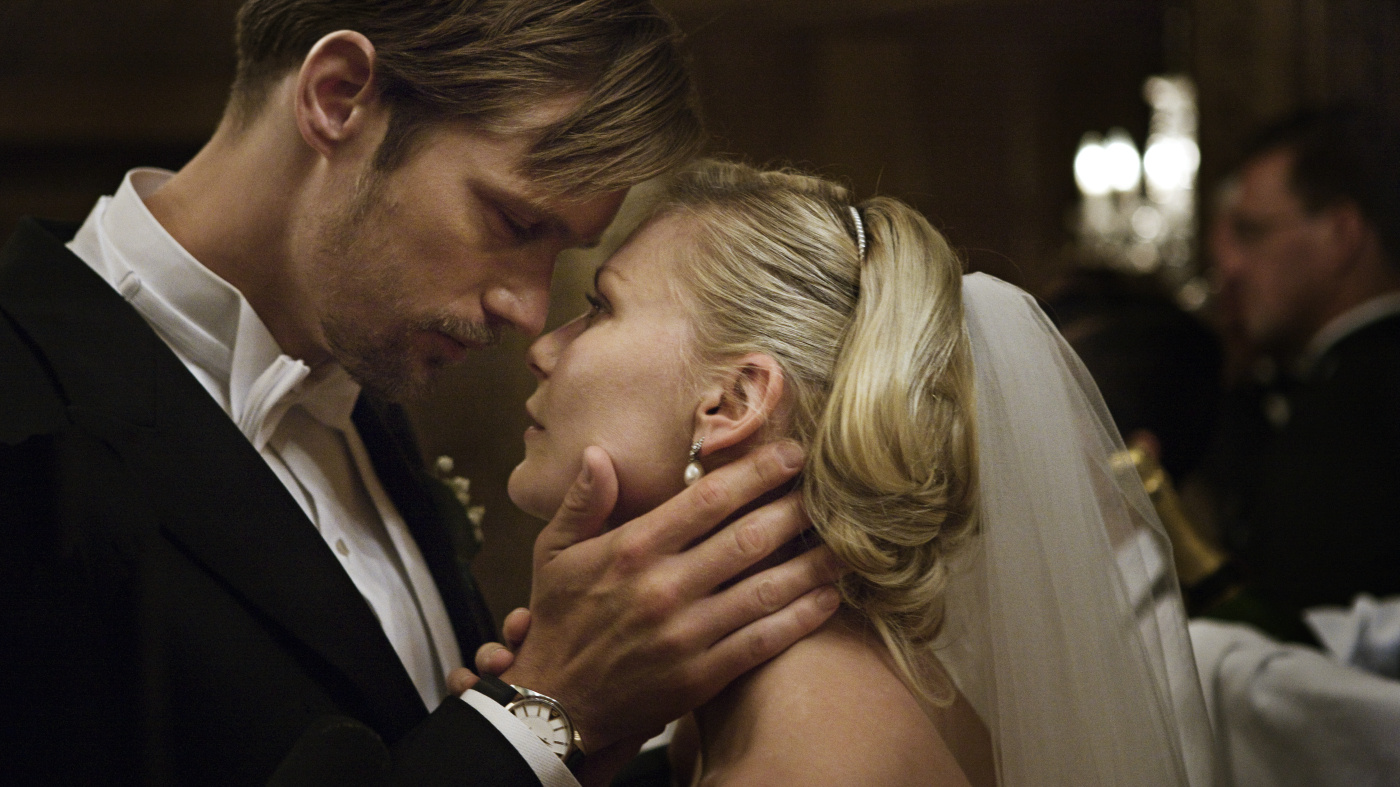
And now comes “Melancholia,” which boasts the finest, most mature performance to date from Kirsten Dunst, still a vastly underestimated actress.
This time around, there are two women, and they are sisters, Justine, played by Dunst, and Claire, played by Charlotte Gainsbourg, who starred in “Antichrist.” Interestingly, Gainsbourg won the Best Actress for that film at Cannes Fest last year, and Dunst is the winner of this year’s Best Actress at Cannes!
Their very names, not to mention their personalities, philosophies and ways of life suggest contrasting reactions to the imminent end of the world, which define the film’s narrative structure, divided into two chapters.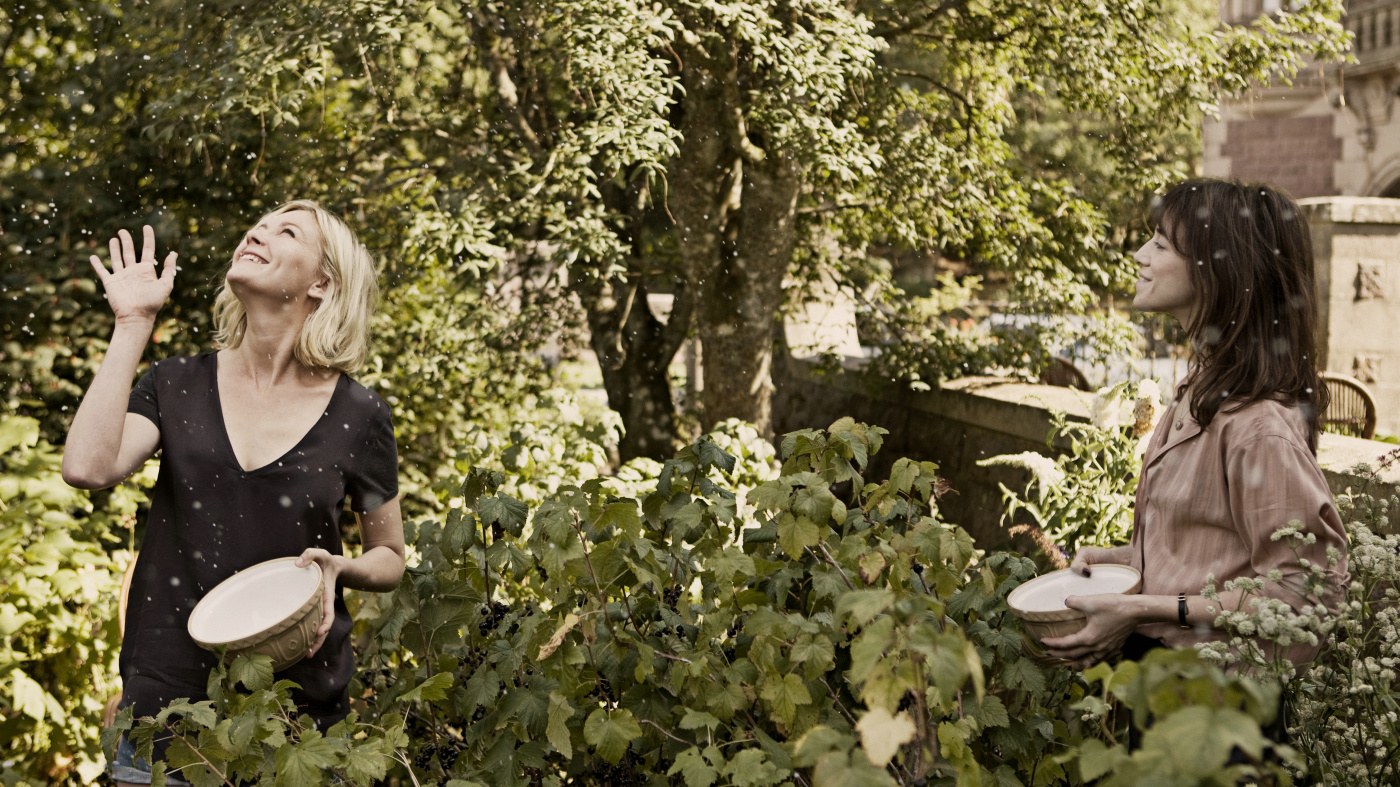
In the first, stunning, slow-motion opening, set to Wagner’s stunning music, “Tristan and Isolde,” the camera observes a moon and another planet, casting shadows on a formal garden. Justine is then seen floating in water and weeds, while a larger planet moves closer to Earth, and the swallows it up. Apocalypse now: The end of the world as we know it.
The narrative centers on one rich family at an isolated country house, set in a non-specific locale, which lends the feature a more universal quality—the story could happen anywhere and everywhere in the world.
The first chapter, “Justine,” depicts the eponymous heroine, an advertising copywriter, about to get married to a handsome, sweet-natured guy (Alexander Skarsgaard (of TV fame). The wedding takes place in the remote and lush estate of her older sister Claire and her brother-in-law John (Kiefer Sutherland, surprisingly good). Justine’s family, especially her quibbling parents, mother (Charlotte Rampling) and father (John Hurt), are eccentric, to say the least. Neither daughter resembles their mother in personality and outlook.
In the second chapter, “Claire,” set after the wedding, which we learn ended poorly, the focus is more intimate, revolving around Justine, Claire, John, and their child.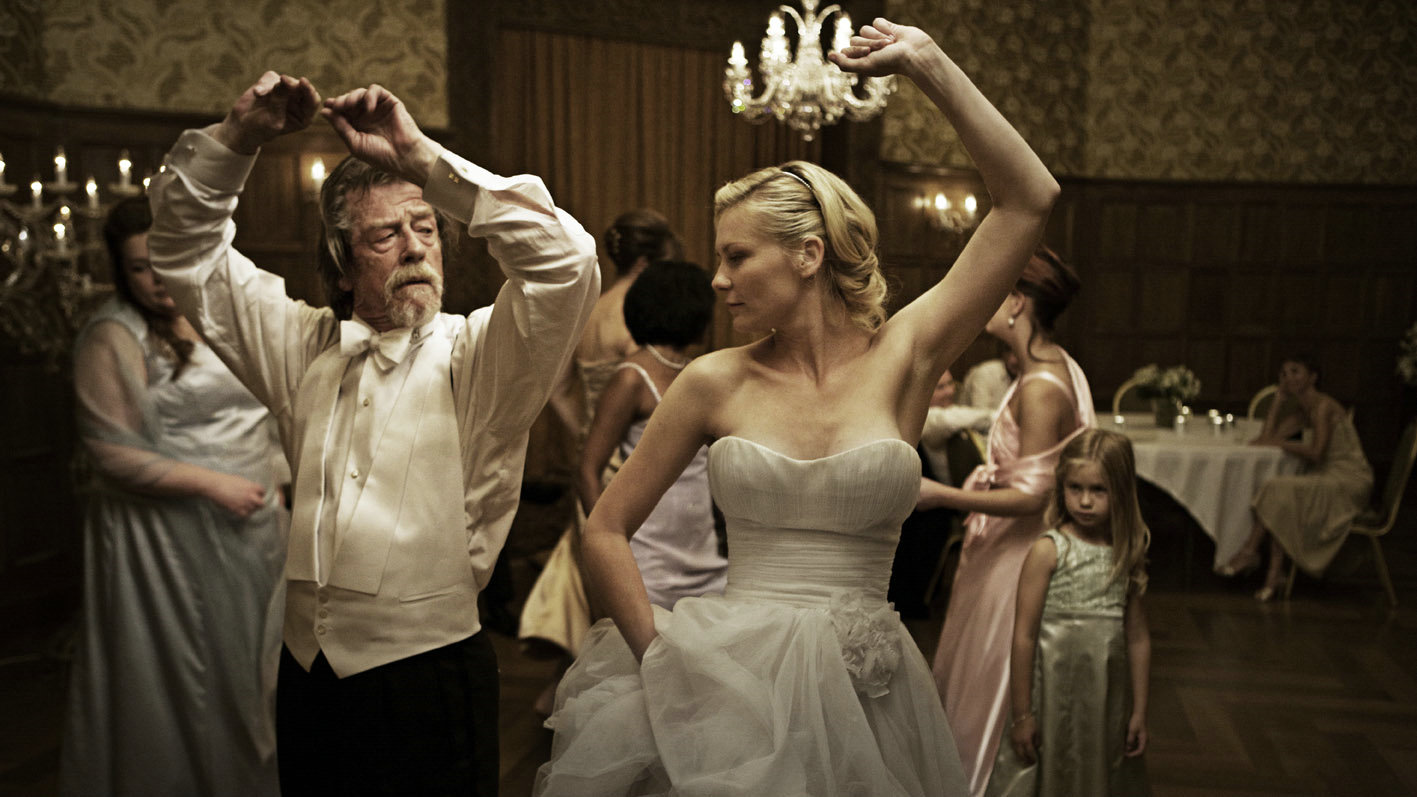
Some of the film’s scenes are shot in a handheld, intimate, documentary-style, with jump cuts, all familiar from former Von Trier’s movies. But other acts are gloriously stylized with excessive yet memorable aesthetic touches.
At times, “Melancholia” comes perilously close to being a shallow serio-comic melodrama about the end of the world. At others, it evokes the spiritual and lyrical sensibility of the great Russian director Andrei Tarkovsky (specifically his last, stunning 1986 feature, “The Sacrifice”), to whom “Melancholia” is dedicated.
Weeks after the screening, what lingered in my mind is the opening montage, which much like the beginning of Terrence Malick’s “The Tree of Life” (also playing at Cannes this year, winning the top award, Palme D’Or), consists of striking cosmic images, slow-motion of birds falling from the sky. Kirsten Dunst, who’s wearing a bridal gown, is looking straight at us (the camera?), while a horse in the background tumbles, and a small planet drifts towards Earth before crashing into it.
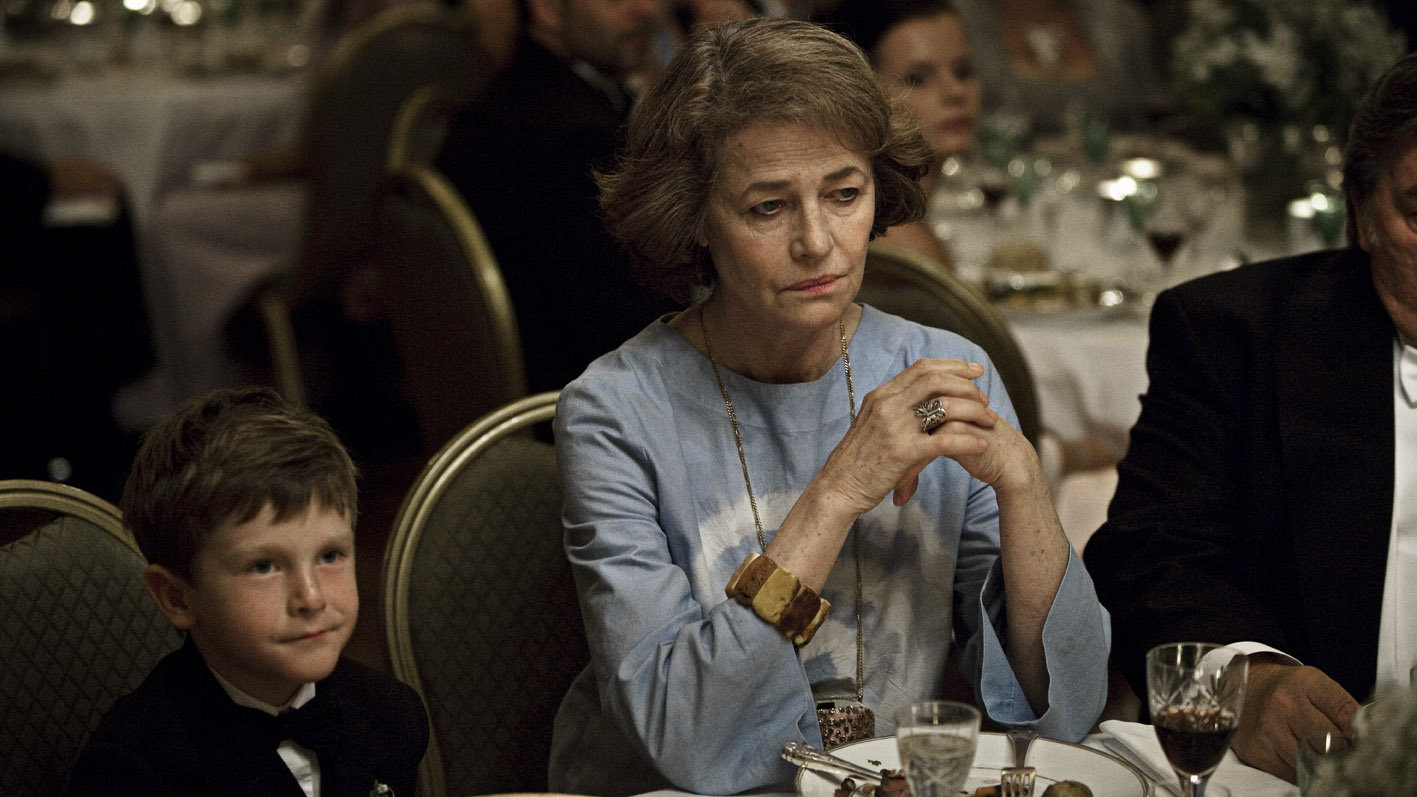
It’s too bad that Von Trier has such a bad off-screen reputation for in “Melancholia” he has created one of his most striking works.
Critical Status:
Kirsten Dunst received the Best Actress at the Cannes Film Festival, and later on was cited by the National Society of Film Critics (of which I’m a member), which also named it Best Picture.
The film won three awards at the European Film Awards for Best Film, Best Cinematographer (Manuel Alberto Claro), and Best Designer (Jette Lehmann).
Cast:
Kirsten Dunst as Justine
Charlotte Gainsbourg as Claire
Alexander Skarsgård as Michael
Kiefer Sutherland as John, Claire’s husband
Cameron Spurr as Leo
Charlotte Rampling as Gaby, Justine and Claire’s mother
John Hurt as Dexter, Justine and Claire’s father
Jesper Christensen as Little Father, The Butler
Stellan Skarsgård as Jack, Justine’s boss
Brady Corbet as Tim
Udo Kier as The Wedding Planner










